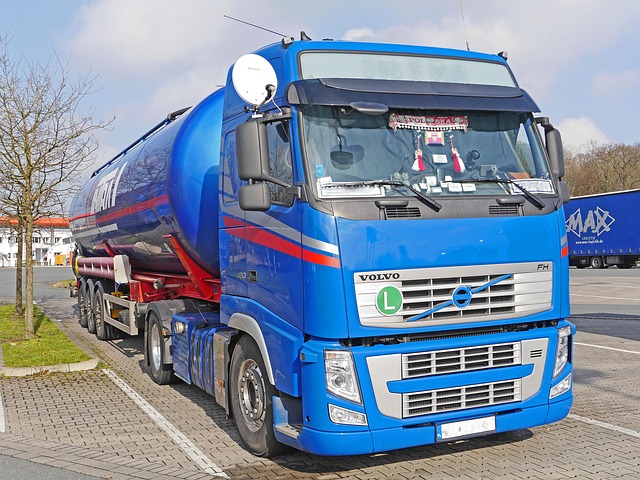High-value shipments require specialized freight protection policies due to increased risks of physical damage, theft, and loss. Businesses assess specific threats, implement advanced solutions (like tracking systems), and tailor insurance plans for comprehensive coverage. Robust policies involve clear handling procedures, GPS tracking, and partnerships with secure carriers. Regular reviews and updates are crucial, as successful freight protection strategies safeguard valuable cargo in a competitive shipping environment.
In today’s globalized world, shipping high-value or specialized goods comes with unique challenges. Understanding the intricacies of these shipments and their inherent risks is paramount for businesses aiming to protect their assets. This article explores comprehensive strategies for insuring such valuable freight, delving into various types of freight protection policies and successful risk management practices. We provide real-world case studies, offering insights into ensuring the secure transportation of specialized goods.
Understanding High-Value Shipments and Their Risks

High-value shipments, whether they’re specialized or unique, come with distinct risks that require tailored strategies for effective insurance. These risks encompass a range of potential dangers, from physical damage during transit to theft and loss. As such, businesses must go beyond basic insurance policies and consider comprehensive freight protection strategies.
Implementing robust freight protection policies involves assessing the specific vulnerabilities associated with high-value items. This may include advanced tracking systems, secure packaging, and specialized transportation methods. By employing these measures, businesses can mitigate risks, increase transparency, and ensure the safe arrival of their valuable shipments.
Types of Freight Protection Policies: A Comprehensive Overview

Freight protection policies are designed to safeguard high-value or specialized shipments, mitigating risks during transit. These policies encompass a spectrum of coverage options tailored to diverse cargo requirements. One key type is comprehensive cargo insurance, offering all-encompassing protection against physical damage, theft, and loss. This policy is ideal for valuable items susceptible to significant financial losses upon unforeseen events.
Another vital option is in-transit coverage, specifically catering to shipments in transit. It safeguards goods from risks such as accidents, natural disasters, and theft during the journey from origin to destination. Additionally, customized insurance plans allow businesses to tailor protection according to their unique needs, incorporating specific provisions for specialized cargo, valuable artwork, or fragile items. Such flexibility ensures that each shipment receives tailored security, aligning with its distinct characteristics and value.
Implementing Effective Risk Management Strategies

Implementing effective risk management strategies is paramount for insuring high-value or specialized shipments. It involves a comprehensive approach that starts with assessing potential risks and vulnerabilities associated with the shipment, such as theft, damage, or loss during transit. Developing robust freight protection policies is a critical step in this process. These policies should outline clear procedures for handling, packaging, and transporting goods, ensuring compliance with industry standards and best practices.
Additionally, utilizing advanced technology like GPS tracking and real-time monitoring systems enhances risk management. Such tools provide valuable insights into the shipment’s location and condition, enabling prompt action in case of anomalies. Moreover, partnering with reputable shipping carriers known for their robust security measures and insurance options can significantly bolster freight protection. Regular reviews and updates to these policies based on changing market conditions and emerging threats are essential to maintaining an effective risk management strategy.
Case Studies: Successful Insuring of Specialized Goods

In the dynamic world of high-value shipping, success often hinges on meticulous planning and robust freight protection policies. Case studies abound highlighting the importance of tailored insurance strategies for specialized goods. For instance, consider a pharmaceutical company shipping experimental drugs requiring precise temperature control. Their success relied not only on selecting an insurer with specialized knowledge in perishable cargo but also on implementing real-time tracking and automated alerts to monitor conditions during transit. This proactive approach ensured swift response to any deviations, minimizing potential losses.
Similarly, a tech startup faced a unique challenge insuring prototype devices susceptible to damage from electromagnetic interference (EMI). By partnering with an insurer offering specialized coverage for electronic equipment, they were able to define clear risk parameters and establish specific handling protocols. This collaboration resulted in a comprehensive freight protection policy that addressed potential EMI-related incidents, providing peace of mind and ensuring the safe arrival of their valuable cargo.
Insuring high-value or specialized shipments requires a strategic approach. By understanding the unique risks associated with these goods, businesses can leverage various freight protection policies to mitigate potential losses. Implementing robust risk management strategies, as highlighted in this article, ensures that valuable cargo is safeguarded during transit. Through real-world case studies, it’s evident that careful planning and tailored insurance solutions can successfully protect specialized goods, fostering confidence in the global shipping industry.
